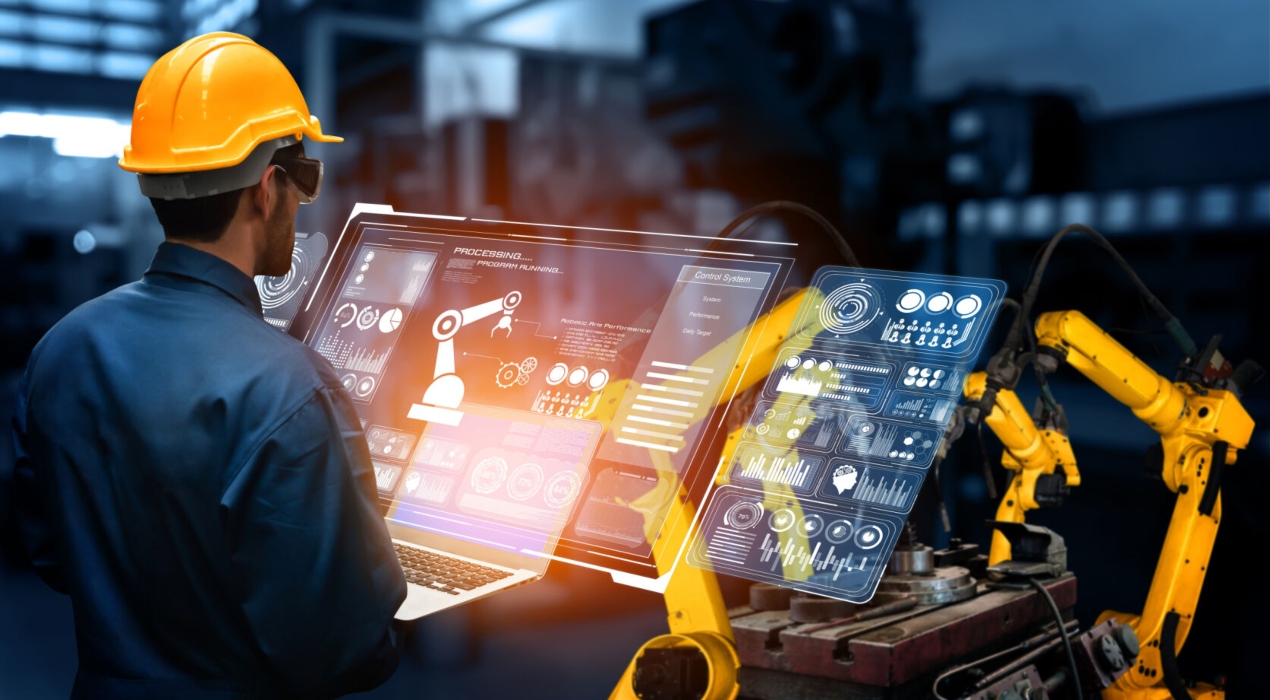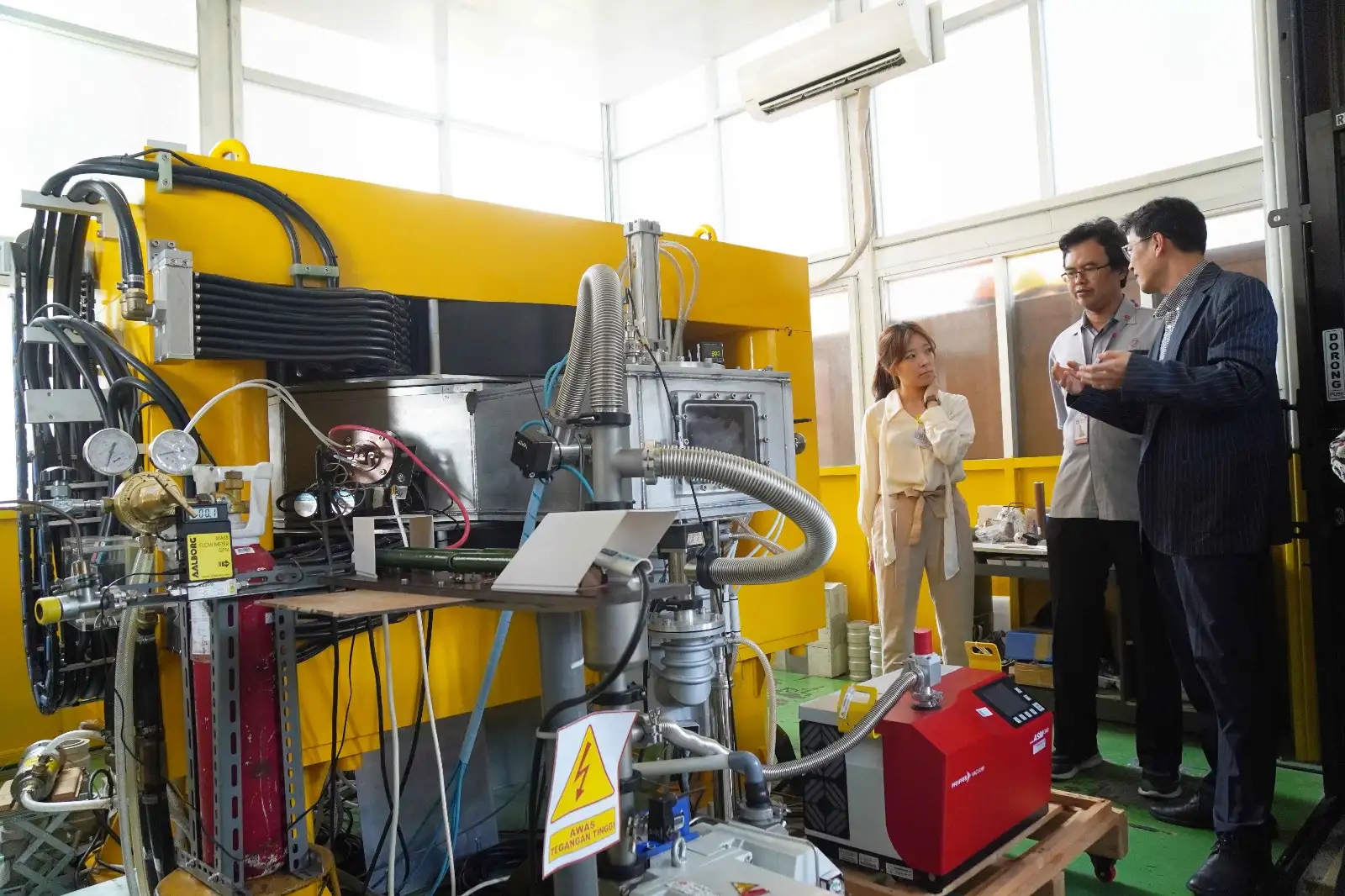
|
Getting your Trinity Audio player ready...
|
Collaboration and partnership between nations in confronting digital technology are paramount. They enable companies to combine their strengths and expertise, fostering the creation of innovative products and services that are significantly more efficient and effective than what a single company could achieve alone. Through collaboration, the nation can pool resources, share knowledge, and leverage diverse perspectives, ultimately driving tremendous success in the rapidly evolving digital landscape.

Indonesia and South Korea are poised to deepen their collaboration in digital technology, marking a significant milestone in their longstanding partnership. The National Research and Innovation Agency (BRIN) of Indonesia has been at the forefront of this cooperation, working closely with institutions such as the Regional Cooperative Agreement Regional Office (RCARO), Korea Atomic Energy Research Institute (KAERI), and Korea Institute of Radiological and Medical Sciences (KIRAMS).
Edy Giri Rachman Putra, BRIN’s Deputy for Science and Technology Human Resources, emphasised the importance of this collaboration in advancing accelerator technology development. “Indonesia and South Korea have a rich collaborative history in the development of accelerator technology. This partnership serves as a cornerstone for both parties to enhance their capabilities and establish more effective programmes and strategies,” explained Edy.
The meeting between the two countries also focused on enhancing human resource capacity in mastering nuclear technology. BRIN has initiated a research visit programme that sends students and researchers to South Korea to participate directly in accelerator and other nuclear-related research with specific topics.
Indonesia views South Korea as an ideal mentor for digital technology in Southeast Asia, given its extensive experience and expertise in the field. South Korea has been a leader in digital technology since the 1970s, operating 25 reactors that supply about one-third of its electricity. Its indigenous APR1400 reactor design has obtained certification in the US and Europe, affirming its safety and technological excellence.
South Korea’s advanced nuclear energy research includes technologies like high-temperature gas-cooled reactors (HTGRs) for low-carbon heat applications, which can help decarbonise industries like steelmaking. South Korea is also exploring small modular reactors (SMRs) that can adjust output to match renewable energy fluctuations, supporting their increasing renewable energy use. Advanced reactors, including some with integrated energy storage, offer flexible baseload capabilities to balance renewables without emissions.
Su JUNG, representing South Korea, affirmed the ongoing international cooperation between South Korea and Indonesia, particularly in cyclotron technology development and human resource capacity building. This collaboration has mutually benefited both countries and could be expanded to include the adoption of cyclotron technology in Indonesia.
Muhammad Rifai, Head of BRIN’s Research Centre for Accelerator Technology (PRTA), highlighted the progress of BRIN’s accelerator research programme, focusing on neutron source research, radioisotope production, sterilisation, and applied research. Rifai emphasised the establishment of a research collaboration platform to oversee the utilisation of accelerator technology, particularly in the health and industrial sectors.
“We are proud to announce that our accelerator research programme has made significant strides in advancing neutron source research, radioisotope production, sterilisation, and applied research,” stated Muhammad Rifai.
Looking ahead, Indonesia and South Korea’s digital technology collaboration is expected to deepen, focusing on developing innovative solutions for sustainable energy and industry. This partnership will likely lead to the continued exchange of expertise and resources, fostering mutual growth and development in digital technology.
As both countries strive to achieve their respective decarbonisation goals, this collaboration will play a crucial role in advancing clean energy solutions and mitigating the impacts of climate change. The future looks promising for Indonesia and South Korea as they work together to address the challenges of the 21st century through science, technology, and innovation in digital technology. By working together, nations can create a more interconnected and resilient digital ecosystem that benefits everyone.
















